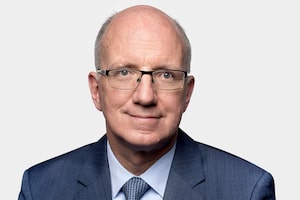Tim Johnston is pointing his cellphone camera into a plastic drum that is half full of what looks like moist top soil.
The co-founder of Li-Cycle Corp. is ending a virtual tour of his Kingston facility by showing off the product that emerges when he shreds, soaks and filters the lithium ion batteries that once powered everything from iPhones and vape pens to Teslas. The plastic drum, the size of an oil barrel, contains a thick, wet mix of lithium, nickel, cobalt and copper, the raw material for new batteries. Mr. Johnston calls it “black mass.”
Apple Inc. chief executive Tim Cook and Elon Musk at Tesla Inc. call it the answer to a pressing problem.
A “tsunami” of used batteries is coming over the next decade, Mr. Johnston says, largely because of surging demand for electric vehicles. This year, Canadians and Americans will toss out 460,000 tonnes of lithium ion batteries. Only a fraction are recycled. By 2028, Li-Cycle projects 2.1 million tonnes of batteries will be junked each year.
Li-Cycle plans to spend several hundred million dollars over the next five years to build two dozen facilities, on its own or in partnerships. The goal is to send the contents of those spent batteries back to manufacturers, rather than into landfills. Mr. Johnston, the company’s executive chair, and CEO and co-founder Ajay Kochhar said in an interview the company is considering going public in the near future to fund expansion in the United States, and eventually into Asia and Europe.
Mr. Johnston and Mr. Kochhar, who both started their careers at global engineering firm Hatch, founded Li-Cycle four years ago. The pair developed what they call a “closed loop” recovery process that produces minimal solid waste and zero liquid and air emissions.
To date, Li-Cycle has raised US$27-million and built two plants – in Kingston and Rochester, N.Y. – that will accept 10,000 tonnes of batteries next year. That makes the 60-employee company North America’s largest lithium ion battery recycler. Over the next five years, Mr. Kochhar said the goal is to open another 22 facilities, capable of processing a total of 220,000 tonnes of batteries annually.
Li-Cycle’s closed loop approach to recycling dovetails with the needs of potential customers such as Apple, which puts batteries into more than 200 million new iPhones each year. Apple has pledged to eliminate waste by embracing circular supply chains, with all their devices made from recycled or renewable sources.
When it comes to batteries, Apple’s 2020 sustainability report says: “We are working to identify new sources of recycled lithium and test their performance in our applications. We also continue to search for and partner with recyclers who can recover lithium at high rates from our end-of-life products.”
Li-Cycle’s technology sets it apart from most current competitors, which heat old batteries to recover their contents. That approach only recaptures half the contents – the lithium is lost, going up smokestacks or into landfill. The Mississauga-based company patented an approach that uses what Mr. Johnston calls “wet chemistry” to break down lithium ion batteries, from any device, and recover 95 per cent of their contents.
Batteries come to Li-Cycle from dozens of sources, including government-run recycling businesses and automakers. A typical electric vehicle holds more than 500 kilograms of lithium ion batteries.
As it expands, Li-Cycle plans to build two types of plants. Mr. Kochhar said the majority of the facilities will be relatively small “spokes” that turn batteries into black mass, and cost about US$4-million to construct. The spokes will feed “hubs,” based on technology developed at the pilot plant in Kingston, that convert black mass into battery-grade nickel, cobalt, lithium chemicals and much more. Each of these large facilities costs about US$175-millon. Li-Cycle plans to have four hubs operating globally within five years, fed by up to 20 spokes.
Li-Cycle is looking for capital at a time when institutional investors are snapping up initial public offerings, and on the hunt for businesses focused on sustainability. Mr. Kochhar said the company is reviewing a number of financing options, including an IPO or going public through a transaction with a special purchase acquisition company. In October, data provider Refinitiv reported that global IPO markets raised US$137-billion in the first nine months of 2020, up by 26 per cent from last year.
Your time is valuable. Have the Top Business Headlines newsletter conveniently delivered to your inbox in the morning or evening. Sign up today.
 Andrew Willis
Andrew Willis